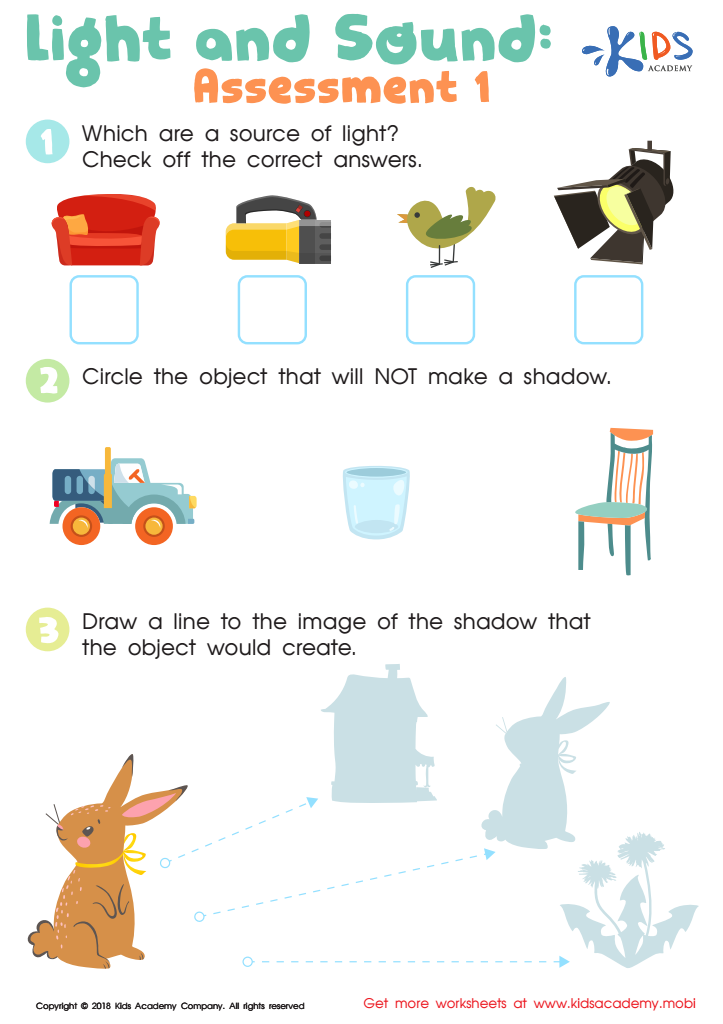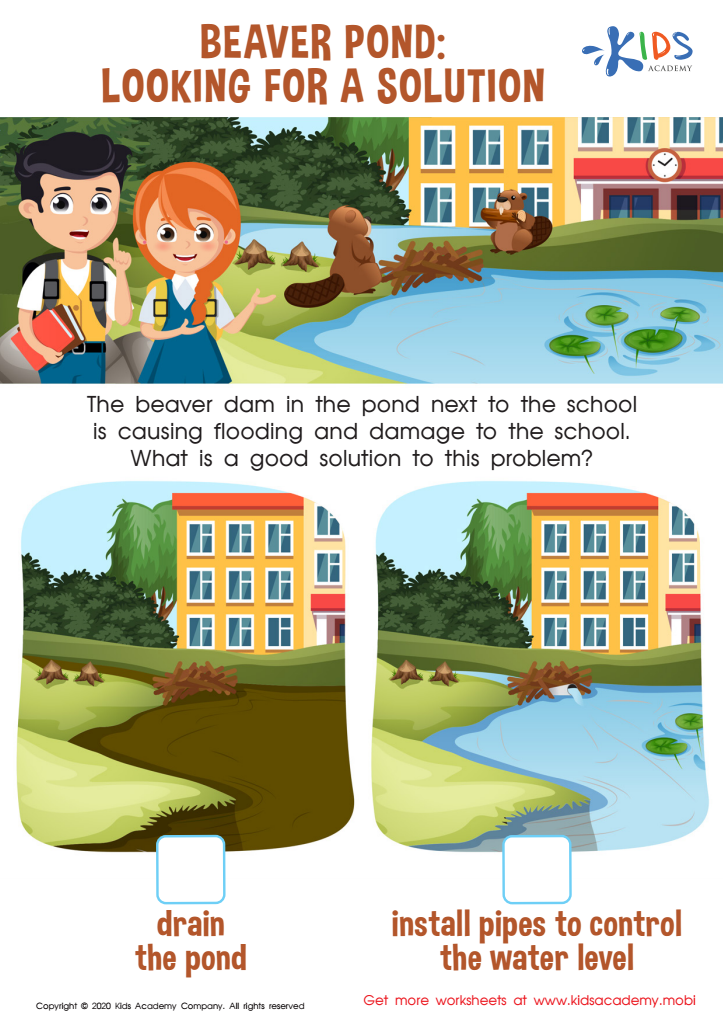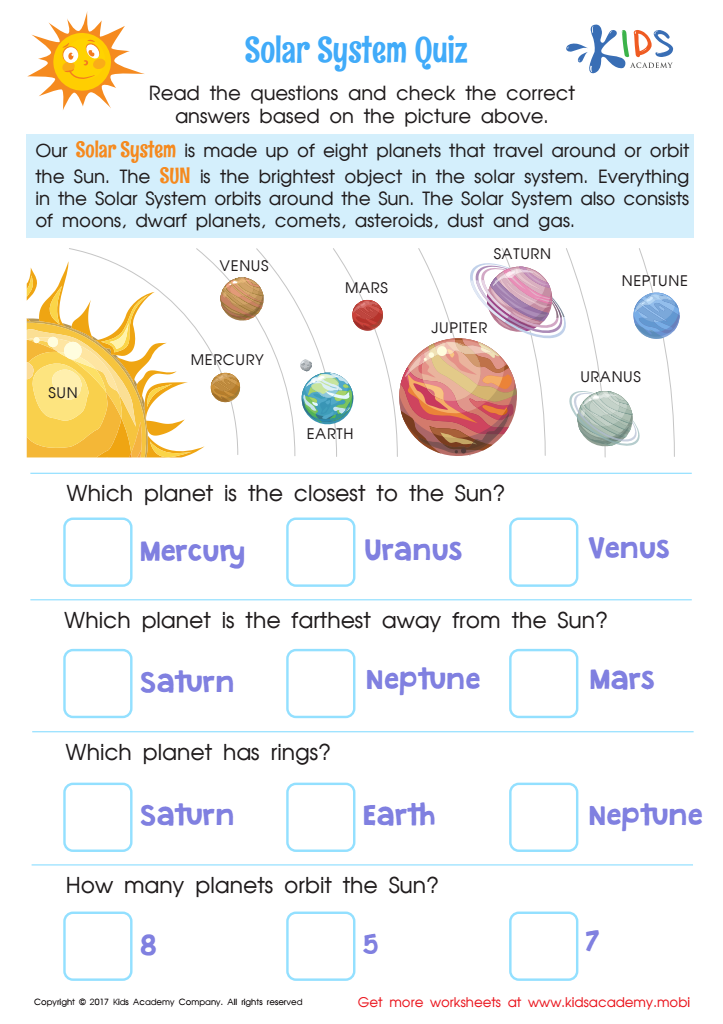Science comprehension Worksheets for Ages 6-8
3 filtered results
-
From - To
Our "Science Comprehension Worksheets for Ages 6-8" are designed to spark curiosity and foster a love for science in young learners. These engaging and educational worksheets encourage children to explore fundamental scientific concepts through fun activities and interactive exercises. From understanding weather patterns to learning about animal habitats and plant life cycles, each worksheet is tailored to build critical thinking and comprehension skills. Perfect for both classroom use and at-home learning, these resources support the development of essential science literacy, making learning an exciting adventure for your child. Explore our collection to ignite a passion for discovery!


Light and Sound: Assessment 1 Worksheet


Beaver Pond: Looking for a Solution Worksheet


Solar System Quiz Printable
Science comprehension for ages 6-8 is foundational for several compelling reasons. Firstly, early exposure to scientific concepts fosters critical thinking and curiosity. When children explore topics like plants, weather, or simple physics, they learn to observe, question, hypothesize, and make reasoned conclusions about the world around them. This kind of analytical thinking is invaluable across all subjects and aspects of life.
Secondly, teaching science at a young age supports literacy and numeracy skills. Reading about scientific phenomena enhances vocabulary and comprehension, while conducting experiments or measuring outcomes enhances numeracy skills. These integrated learning opportunities can inspire a love for learning and improve overall academic performance.
Furthermore, early science education sparks curiosity and creativity. Children are naturally inquisitive, and exploring science taps into their inherent desire to understand their environment. These experiences not only make learning fun but also motivate children to pursue further knowledge independently. As a result, kids develop a lifelong interest in various fields of science and technology, which are increasingly crucial in our rapidly advancing world.
Lastly, early science comprehension cultivates environmental awareness and a sense of responsibility. Learning about nature, ecosystems, and the impact of human activities helps children develop an appreciation for the environment and instills early values of sustainability and stewardship.
By emphasizing science comprehension from a young age, parents and teachers set children on a path of intellectual growth, practical skills development, and responsible citizenship.
 Assign to My Students
Assign to My Students
















